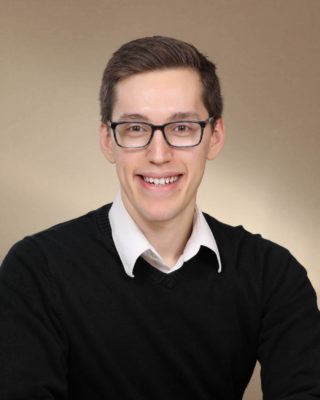Spotlight: Joseph Long

“The BEST program has helped me look at options in science communication and policy as possible avenues to use my skills in an effective and rewarding manner.”
When and why did you become interested in non-academic careers?
Since undergrad, it had been my goal to become a tenure-track professor. I came into graduate school thinking I could use my skills to make a difference in how we understand ourselves as a species on a fundamental and applicable level. With this in mind, I thought my skills could be used to learn as much as I could about engineering human health and ultimately make an impact in my field in a big way. I came to realize a traditional academic career is so focused on a prescribed way of thinking that I felt dismayed by and could be improved in many ways. I concluded that I value discussion on where science as an enterprise could go and how society influences it more than working with cells in the lab and writing grants. This self-awareness started to grow when my department introduced BEST and the many options outside of academia that could cater to my drive for advocacy and communication.
What BEST activities/events have helped you most? In what ways?
The BEST program has helped me look at options in science communication and policy as possible avenues to use my skills in an effective and rewarding manner. I have participated in a slew of activities ranging from the Science Communication Workshop, MIT Policy Hackathon, and multiple organized panels. I have been able to find a community of peers and mentors that overlap with my interests, build my communication skills, and develop a better understanding of current landscapes around STEM. Since becoming involved in BEST, I have interacted with Advancing Science And Policy, worked with NPR Scicommers (Friends of Joe’s Big Idea) to edit scientific articles being submitted to news outlets, developed a proposal in a science policy course, and attended Cornell Advocacy Day in Washington DC. These activities have strengthened my understanding of what roles I can play as a scientist beyond academia. That knowledge will no doubt feed into a career dedicated to science communication and policy that I am genuinely excited about.
What are your current career goals? Have they changed since you started your degree?
My current career goals include building my skills in communication and policy through coursework, fellowships, and exploration of federal or state level policy related roles, scientific outreach and journalism, or teaching and advocating STEM in some form. My current path has drastically changed since starting my degree and I fully accept the idea that I will not be pigeonholed into one career. I plan to remain open-minded about my options closer to completion of my PhD as there is no definitive path for me yet. However, I now have a better sense of how my values and skills can fit into the overarching STEM realm and look forward to what the future holds.
Joseph is a second year PhD student in the Biomedical Engineering program. He’s studying the effects of muscular dystrophy diseases at the cellular and molecular level. In his free time he’s the BMES Graduate Student Chapter President, goes rock climbing, plays the occasional video game, and goes on nature adventures.
by Cassi Wattenburger
This spotlight is from the time period of the NIH grant (Sept. 2013- Jun. 2019) to the Cornell BEST Program. As a result of the success of the grant funded period, Cornell University transformed BEST into a university-wide initiative “Careers Beyond Academia/BEST” to encompass all disciplines, and is now housed in the Graduate School.


